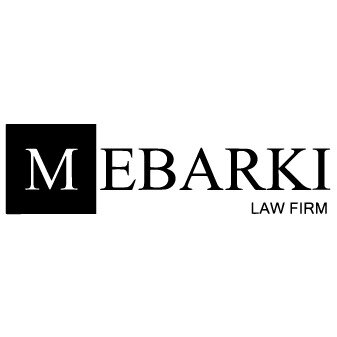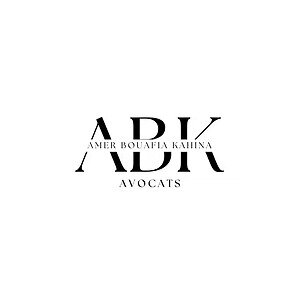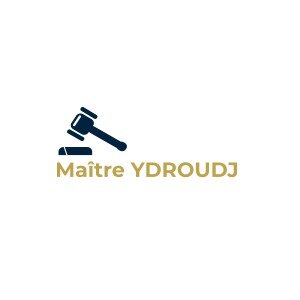Best Public-Private Partnerships (PPP) Lawyers in Algiers
Share your needs with us, get contacted by law firms.
Free. Takes 2 min.
List of the best lawyers in Algiers, Algeria
About Public-Private Partnerships (PPP) Law in Algiers, Algeria
Public-Private Partnerships, often known as PPPs, are collaborative agreements between governmental entities and private sector companies designed to finance, build, operate, or maintain public infrastructure and services. In Algiers, Algeria, PPPs have become an essential tool for addressing infrastructure needs, improving public services, and harnessing private sector efficiencies. The legislative and regulatory frameworks governing PPPs in Algeria aim to encourage investment while ensuring accountability, transparency, and value for the public sector. PPP arrangements can be found across sectors such as transportation, energy, healthcare, and urban development.
Why You May Need a Lawyer
Engaging in Public-Private Partnerships in Algiers involves complex legal relationships, stringent regulations, and significant financial commitments. Here are some common scenarios in which legal assistance is highly recommended:
- Negotiating and drafting PPP contracts or concession agreements
- Ensuring compliance with applicable PPP laws and regulations
- Dealing with regulatory authorities and obtaining required permits or approvals
- Resolving disputes between public entities and private partners
- Advising on risk allocation, project financing, and liability issues
- Conducting due diligence on project feasibility and legal risks
- Structuring joint ventures or consortiums for PPP project bids
- Managing procurement processes and competitive bidding requirements
- Guiding foreign investors through local legal requirements and protections
- Addressing issues related to tax, labor law, or environmental impact in PPP projects
Legal support ensures that your interests are protected, contractual obligations are clear, and any potential legal pitfalls are avoided throughout the PPP lifecycle.
Local Laws Overview
Algeria’s PPP framework is governed by a combination of specific laws, government decrees, and sectoral regulations. The law regulating public-private partnerships is designed to attract private investment while safeguarding public interest and promoting socio-economic development. Key legal aspects relevant to PPPs in Algiers include:
- PPP contracts are usually subject to the Public Procurement Code, which outlines transparent bidding and selection procedures
- Legal provisions determining the types of projects eligible for PPP procurement, including infrastructure and essential public services
- Mandatory feasibility studies and value-for-money assessments prior to project approval
- Government oversight through relevant ministries, agencies, or specialized PPP units
- Obligations related to environmental, social, and labor standards in project execution
- Guidelines for dispute resolution, typically via local courts or arbitration
- Eligibility criteria for private sector participation, including requirements for foreign investors
- Regulation of tariffs, revenue sharing, and risk allocation between public and private partners
The regulatory environment is dynamic, and it is important to consult up-to-date legal information and official sources when engaging in PPP activities in Algiers.
Frequently Asked Questions
What is a Public-Private Partnership (PPP) in Algiers, Algeria?
A PPP is a legally binding agreement between a public authority and a private company for the provision of public infrastructure or services, where the private sector assumes significant project risk and management responsibility.
What sectors commonly use PPPs in Algiers?
PPPs are widely used in sectors like transport infrastructure, utilities, healthcare facilities, education, water supply, energy, and urban development projects.
Are PPP contracts in Algeria subject to public procurement laws?
Yes, PPP contracts are generally governed by the Algerian Public Procurement Code, which mandates transparency, fair competition, and standardized procedures for the selection of private partners.
Can a foreign company participate in PPP projects in Algiers?
Yes, foreign companies can participate, though they must comply with local investment laws, registration requirements, and may be subject to specific conditions related to ownership or local content.
How is risk allocated in PPP contracts?
Risk is typically allocated based on which party is better able to manage each element, such as construction, operational, financial, or regulatory risks. Detailed allocation is set out in the PPP contract.
Who supervises and oversees PPP projects in Algiers?
Relevant government ministries, sectoral agencies, and sometimes specialized PPP units are responsible for oversight and supervision throughout the project lifecycle.
What are the standard steps in the PPP project cycle in Algeria?
Typical steps include project identification and preparation, feasibility study, tender and selection process, contract negotiation, financial closure, construction and implementation, monitoring, and finally, transfer or handback at the end of the contract term.
What legal recourse do parties have in the event of a dispute?
Disputes may be resolved through negotiation, mediation, local courts, or arbitration, as specified in the PPP agreement. Algeria recognizes and enforces certain international arbitration awards.
Is government approval always required for PPP projects?
Yes, government approval is typically required at multiple stages, including project selection, concession award, and contract execution.
What are the key benefits of PPPs for both public and private sectors?
PPPs enable public authorities to leverage private capital and expertise, accelerate infrastructure delivery, and improve service quality, while private partners gain long-term revenue opportunities and potential for innovation.
Additional Resources
If you are considering a PPP project or need more information, the following resources may be helpful:
- Ministry of Finance (Directeur Général du Partenariat Public-Privé)
- Ministry of Public Works and Transport
- National Investment Development Agency (ANDI)
- Chamber of Commerce and Industry of Algiers
- Algerian Bar Association for legal counsel
- Local offices of international development organizations active in PPPs
These bodies provide guidance, regulatory updates, and support services to facilitate public-private collaboration in Algeria.
Next Steps
If you require legal assistance regarding Public-Private Partnerships in Algiers, consider the following steps:
- Identify your specific legal needs, such as contract review, project structuring, or dispute resolution
- Consult a lawyer or legal firm with expertise in PPP projects and the Algerian regulatory environment
- Prepare all relevant documents, including draft agreements, feasibility studies, and correspondence with authorities
- Schedule an initial consultation to discuss your case and assess possible legal strategies
- Stay informed about current laws, amendments, and industry best practices
Professional legal guidance helps you navigate complex PPP processes, avoid costly mistakes, and ensure your interests are well protected throughout any project in Algiers, Algeria.
Lawzana helps you find the best lawyers and law firms in Algiers through a curated and pre-screened list of qualified legal professionals. Our platform offers rankings and detailed profiles of attorneys and law firms, allowing you to compare based on practice areas, including Public-Private Partnerships (PPP), experience, and client feedback.
Each profile includes a description of the firm's areas of practice, client reviews, team members and partners, year of establishment, spoken languages, office locations, contact information, social media presence, and any published articles or resources. Most firms on our platform speak English and are experienced in both local and international legal matters.
Get a quote from top-rated law firms in Algiers, Algeria — quickly, securely, and without unnecessary hassle.
Disclaimer:
The information provided on this page is for general informational purposes only and does not constitute legal advice. While we strive to ensure the accuracy and relevance of the content, legal information may change over time, and interpretations of the law can vary. You should always consult with a qualified legal professional for advice specific to your situation.
We disclaim all liability for actions taken or not taken based on the content of this page. If you believe any information is incorrect or outdated, please contact us, and we will review and update it where appropriate.











